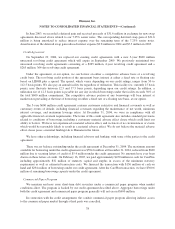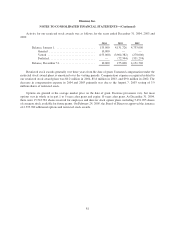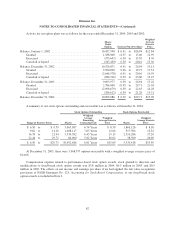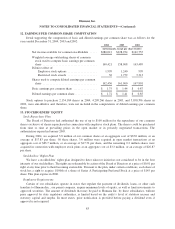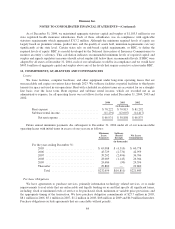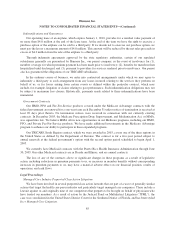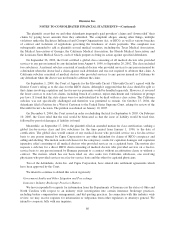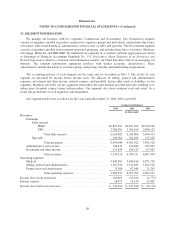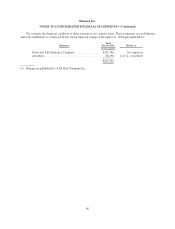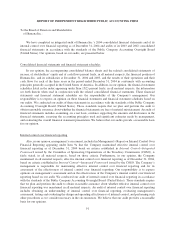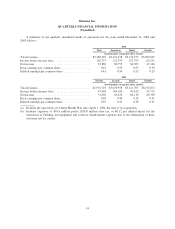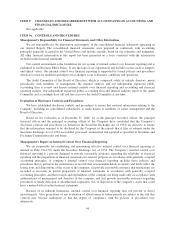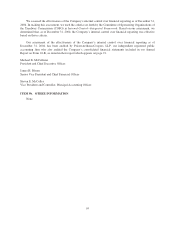Humana 2004 Annual Report Download - page 97
Download and view the complete annual report
Please find page 97 of the 2004 Humana annual report below. You can navigate through the pages in the report by either clicking on the pages listed below, or by using the keyword search tool below to find specific information within the annual report.Humana Inc.
NOTES TO CONSOLIDATED FINANCIAL STATEMENTS—(Continued)
Other
In July 2000, the Office of the Florida Attorney General initiated an investigation, apparently relating to
some of the same matters that are involved in the managed care industry purported class action litigation
described above. On September 21, 2001, the Texas Attorney General initiated a similar investigation. No actions
have been filed against us by either state. These investigations are ongoing, and we have cooperated with the
regulators in both states.
On May 31, 2000, we entered into a five-year Corporate Integrity Agreement, or CIA, with the Office of
Inspector General, or OIG, of the Department of Health and Human Services. Under the CIA, we are obligated
to, among other things, provide training, conduct periodic audits and make periodic reports to the OIG.
In addition, our business practices are subject to review by various state insurance and health care regulatory
authorities and federal regulatory authorities. There has been increased scrutiny by these regulators of the
managed health care companies’ business practices, including allegations of anticompetitive and unfair business
activities, claims payment practices, commission payment practices, and utilization management practices. We
have been and continue to be subject to such reviews. Some of these have resulted in fines and could require
changes in some of our practices and could also result in additional fines or other sanctions.
We also are involved in other lawsuits that arise in the ordinary course of our business operations, including
claims of medical malpractice, bad faith, nonacceptance or termination of providers, improper rate setting, failure
to disclose network discounts and various other provider arrangements, as well as challenges to subrogation
practices. We also are subject to claims relating to performance of contractual obligations to providers, members,
and others, including failure to properly pay claims and challenges to the use of certain software products in
processing claims. Pending state and federal legislative activity may increase our exposure for any of these types
of claims.
In addition, some courts have issued rulings which make it easier to hold plans liable for medical negligence
on the part of network providers on the theory that providers are agents of the plans and that the plans are
therefore vicariously liable for the injuries to members by providers.
Personal injury claims and claims for extracontractual damages arising from medical benefit denials are
covered by insurance from our wholly owned captive insurance subsidiary and excess carriers, except to the
extent that claimants seek punitive damages, which may not be covered by insurance in certain states in which
insurance coverage for punitive damages is not permitted. In addition, insurance coverage for all or certain forms
of liability has become increasingly costly and may become unavailable or prohibitively expensive in the future.
The likelihood or outcome of current or future suits, like the purported class action lawsuit described above,
or governmental investigations, cannot be accurately predicted with certainty. In addition, the potential for
increased liability for medical negligence arising from claims adjudication, along with the increased litigation
that has accompanied the negative publicity and public perception of our industry, adds to this uncertainty.
Therefore, such legal actions and government audits and investigations could have a material adverse effect on
our financial position, results of operations, and cash flows.
87



